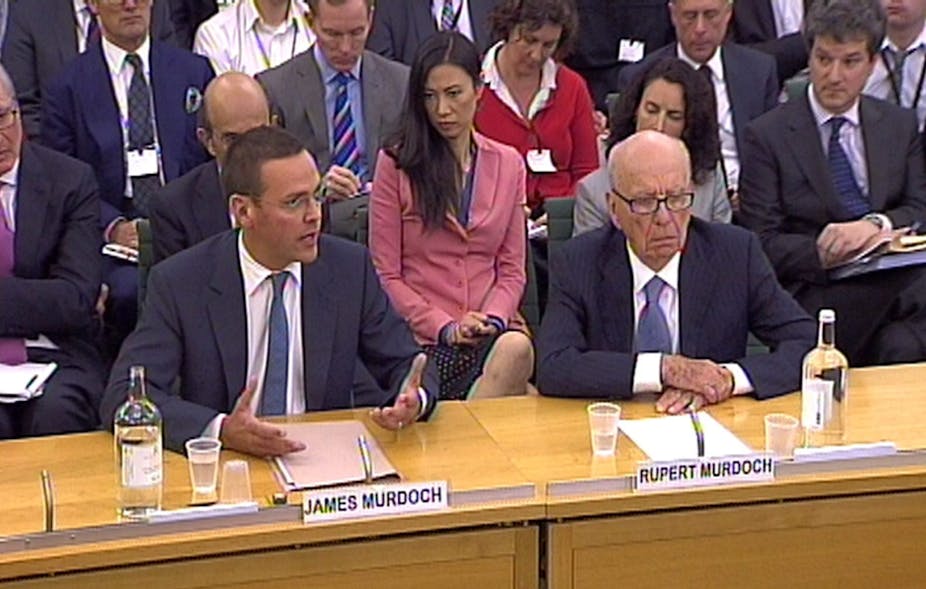Will the damning, and somewhat surprising, verdict brought in on Rupert Murdoch by a committee of British parliamentarians, spell the end of the reign of the Wizard of Oz?
The answer depends on what is meant by “the end”. Certainly it will be impossible for Murdoch to ever again exercise the power and influence that he has wielded over successive British prime ministers from Mrs Thatcher onwards.
What might be more problematic is whether “the end” also means that News Corporation, far from being able to complete their now abandoned takeover of the British broadcaster BSkyB (which has become a £1 billion a year cash cow) could in fact mean that they will be forced to divest themselves of their current holding completely?
Fit and proper
The answer to this conundrum lies with the British broadcast regulator Ofcom which is considering whether News Corporation is a “fit and proper” organisation to hold a UK broadcasting licence at all; ironically the self-same regulator whose powers Murdoch (and son) had been pressing Prime Minister David Cameron to rein in.
Inevitably, the MPs (majority) verdict - that Rupert Murdoch, is “not fit to run an international company” - will no doubt be ringing in the ears of the Ofcom regulators when they come to make their fateful decision.
And if News Corporation is forced to divest itself of the highly profitable BSkyB, Murdoch’s American-based organisation might well decide that the time has come to pull out of the UK completely.
Goodbye to the UK?
This would involve selling the highly profitable, but also always controversial, daily newspaper The Sun, the newly-launched Sun on Sunday (the replacement for the News of the World which Murdoch closed at the height of the phone-hacking scandal) the Sunday Times (Britain’s most profitable upmarket newspaper) and The Times, loss-making but highly prestigious.

For the News Corporation board in New York, getting rid of its troublesome British holdings could look like an attractive proposition, given that in the great scheme of things, they remain small beer within the News Corporation brewery.
A personal humiliation
But for Rupert it would be a different matter. Whilst he is a corporate man, and the bottom line is important to him, being forced to sell, or close his UK newspaper holdings would be wrench and an ignominious personal humiliation. For it was here, in his audacious swoops for the News of the World in 1968 and The Sun a year later, that he announced his arrival on the international media stage.
And even though he re-located to the US in the 80s and became a US citizen in 1985, he still retained a keen interest in his British newspapers – reputedly phoning his editors on a regular basis to praise, upbraid or just gossip.
A lobby hack at heart
Murdoch will find it similarly painful to decouple himself from the British political scene. For although his actual presence in the UK has been sporadic, when it he was here it was the company of politicians that he appeared to most sought out, as he revealed to the Leveson Inquiry.
Between 1997 and 2007 met with Tony Blair 31 times and in his first year in office he met with David Cameron on nine occasions (though Downing Street claim the real figure was six).
Whatever the correct number the fact remains that Murdoch was, is and will forever be a “political groupie” but as a result of the cumulative effects of the phone-hacking revelations, the Leveson Inquiry and the parliamentarians’ report, that pleasure will now undoubtedly be denied to him.
All of which leads to the final thought – surely it is now time for the old Wizard of Oz, to take a final bow, hang up his wand and retire gracefully behind his curtain.
Dream on.

